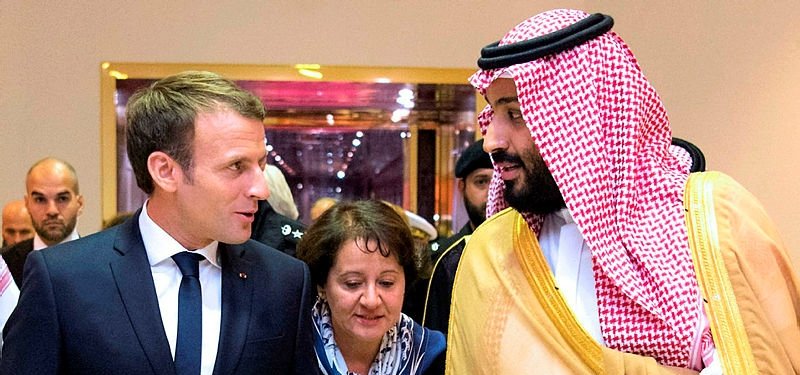
Paris puts pressure on dictators to stop Gulf-wide boycott of French goods
The Macron administration has started to put pressure on some Arab leaders to stop a growing worldwide boycott campaign for French-made products launched to protest French President Emmanuel Macron’s anti-Islamic policies targeting Muslims.
- World
- Agencies and A News
- Published Date: 10:09 | 26 October 2020
- Modified Date: 10:21 | 26 October 2020
France is attempting to stifle a growing boycott movement against its products by urging Middle Eastern dictators to ban retailers from pulling French goods, according to the sources speaking to Turkey's state-run English-language broadcaster TRT World.
A statement by the French foreign ministry called on Middle Eastern countries to prevent what it called a 'radical minority' from proceeding with the boycott.
Anger has simmered to boiling point across the Islamic world over recent attacks on Islam and Muslims by French President Emmanuel Macron and calls for boycott have grown as many Muslims find peaceful ways of conveying their anger.
French officials are attempting to disrupt the non-violent campaign despite the risk it could pose to activists.
Most French allies in the region, such as the UAE and Saudi Arabia, are absolute dictatorships and have used measures, such as torture and imprisonment, to silence dissent.
The statement also seems to contradict Macron's recent statements on the importance of free speech and freedom of expression.
The French president's campaign against the religion has escalated since the murder of a French school teacher after a row over the display of cartoons of the Prophet Muhammad during a lesson.
France responded to the killing by displaying insulting cartoons of the Prophet Muhammad on buildings across the country.
Instead of making the distinction between an extremist minority and the Muslim community, Macron and his ministers have framed the problem of extremism in the context of Islam itself.
Talking about the the issue of religious radicalism, Macron has claimed that 'Islam was in crisis' across the world and that Muslims in France were responsible for 'Islamic separatism' by refusing to integrate with wider society.
Planned measures to target Muslims include the banning of Arabic language classes and restrictions on the sale of halal food.
In a recent interview with the BFM channel, French Interior Minister Gerald Darmanin recently took aim at products aimed at fulfilling Muslim dietary requirements.
"It's always shocked me to go into a supermarket and see that, when entering, there would be one type of ethnic food selection here and another one next to it," Darmanin said.
The planned measures are in addition to existing restrictions on a woman's right to wear the Islamic headscarf and the ban on the face covering that some Muslim women choose to wear.
In the past few years in France, Muslim mothers have been banned from attending school trips due to their hijabs, sports stores have been threatened by politicians for offering clothing for Muslim women, and schools have even demanded that Muslim students wear shorter skirts.
This new round of rhetoric against Muslims and Islam has proved the breaking point for many Muslims and as a consquence, the call for a boycott of French goods has gone viral on social media.
A number of major retailers across the Middle East have proceeded with the boycott of French products.
Images shared of supermarkets in Kuwait, Jordan, and Qatar showed empty shelves where French products once stood.
Several major chains across the region have vowed to pull French products.
In Qatar, the Al Meera supermarket chain, which is one of the country's largest retailers, announced that it would stop selling products from France with immediate effect.
In a statement, the company said: "As a company, we work according to a vision consistent with our religion, our established customs and traditions, and in a way that serves our country and our faith and meets the aspirations of our customers."
Qatar University has also suspended its planned 'French Cultural Week' over the targeting of Islam in the country.
In Kuwait, Alnaeem Cooperative Society, among other retailers and trade associations, announced it was ceasing the sale of French goods.
Many in the region also described French attempts to stop the boycotts, as an example of the state's hypocrisy on the issues of freedom of speech.
One Twitter user wrote:
"The call to boycott all French products is a regional boycott. Are we ALL extremists? Isn't a boycott a form of protest, something fundamental to democracies and democratic societies?"
"Why is it bothering Macron's government so much...?"
- Wall St closes down on soaring virus cases, U.S. stimulus worries
- Trump set for Supreme Court boost in election final week
- U.S. reports 63,195 cases with 380 deaths from coronavirus
- Brazil sees 15,726 new coronavirus cases, 263 new deaths - health min
- Czechs tighten measures against COVID-19 with curfew, retail curbs

